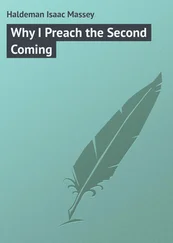“I don’t know why,” she says.
“Why what?”
“Sometimes in the morning I’m lying in bed and all I want to do is lie in bed. How can you want something you’re already doing?”
“My grandfather used to say when you’re dead you spend your time wishing you could pay taxes.”
The beetle’s not dead yet. “It isn’t the work. That beyond this bed there’s work I have to do. All those little boys. Tomo. Soon he’ll be awake and pulling on the edge of my sheets. He might be already awake and doing that. Because times like this I only know what I’m thinking, not what’s happening.”
“I understand. Tomo. It’s difficult.”
“I said, it isn’t Tomo. It’s the wanting —”
“But wanting what?”
“Didn’t I just explain it to you?”
To give them hope, Antoinette read Genesis to the cows. She brought her Bible out to the veld and read to them.
“And Pharaoh said unto Joseph, In my dream, behold, I stood upon the bank of a river:
“And, behold, there came up out of the river seven kine, fat fleshed and well favored; and they fed in a meadow.”
(Kine, Antoinette explained to them, means you.)
“And, behold, seven other kine came up after them, poor and very ill favored, such as I never saw in all the land of Egypt for sadness:
“And the lean and ill favored kine did eat up the first seven fat kine.”
The cows stood there and listened to her. Their eyes were hardly visible through the dust that coated them. They had dug their faces into the earth till the earth blinded them.
What she left out, she told me later as she fiddled with the nozzle of the paraffin can in order to stoke the Primus — the swoop of the paraffin catching, its muted steady roar — was what happened after the ill favored kine ate the fat ones. Her Bible on the counter, a pen holding the spot, her hand reaching for it.
She reads, “And when they had eaten them up, it could not be known that they had eaten them; but they were still ill favored, as at the beginning. So I awoke.”
The stove, a perfect circle of blue flame. The tiny black flecks in the flame. Antoinette closes the book.
That night we listened to their raspy lows from our beds. Night being the only time they expressed their displeasure toward God at being ill favored.
Anew Goas tradition. In honor of independence, Obadiah would write a play for Cassinga Day, May 4. And so weekends he sequestered himself in the mimeograph shack with the big crank machine, the chemicals, and the spiders. He had some boys carry over his personal library. He’d refuse to eat anything other than rusks and cold tea. Through the grimy window we watched him, surrounded by all those tented books. Occasionally he’d emerge lost in thought. We knew this because if you happened to be passing by when he was standing outside the door, he’d say, “Yes, well, I’m lost in thought.” Then, if you laughed he stared at you, not at your face, at your heart, as if something was missing there. We did not understand the tribulations.
A knock on the door. “Head Teacher?”
“Come in.”
A boy, a Standard Two named Tonderai, famous around Goas as the one who loves to run messages back and forth for teachers, enters the writer’s chamber shyly.
“Ah, Muse, I thought you’d forsaken me. I must say I was expecting someone taller.”
“Auntie will be back to tomorrow, Teacher. Sister Ursula phoned.”
Obadiah uncaps a pen and hands it to the boy.
“Slay me.”
“Excuse, Teacher?”
“With this lance — do it.”
126. UP ON THE HILL BY THE CROSS
Iclimb up the hill to the cross and find Vilho up there by himself. He’s reading and doesn’t say anything to me, and I don’t say anything to him.
When Vilho read, he had a strange way of squinching his eyes. It occurs to me now that this might have been because he was rereading sentences. He would hold the book close to his face and remain on the same page for a long time. On a farm full of readers, he might have been the only one who read with pure delight.
I sit bookless and read the names of boys left on the rocks near the base of the cross: Absalom Shipanga ’81, Phillemon Silvanus ’77, Nestor Nashongo ’74, Titus Mueshihua ’86, Matundu Kapute ’77, Erwin Mbando ’70, Rodney Goaseb ’87, Adonis Gowab ’84, Abraham Haifiku ’73, Petrus Van Weyk ’73, Johannes Isack ’77, Rueben Holongo ’79, Ihepa Enkono ’82, Stephanus Nami ’81, Andreas Kati ’75, Joseph Manasse ’77, David Visser ’74, Phineas Shivute ’82.
After a while, Vilho peers over the rim of his book. “Do you know what today is?”
“Thursday.”
“Maundy Thursday.”
“What’s that?”
“The day in John when the supplicants wash the feet of the poorest.”
“Whose poorest?”
“How much do you have?” Vilho says.
We empty our pockets of rands, toss the money in the sand. Four rand, sixty total. The light retreats like another traitor. Neither of us washes the other’s feet. We sit in the gray silence, our socks off. Absalom Shipanga. Phillemon Silvanus. Nestor Nashongo. Titus Mueshihua. Matundu Kapute. Erwin Mbando. Rodney Goaseb. Adonis Gowab. Abraham Haifiku. Petrus Van Weyk. Johannes Isack. Rueben Holongo. .
Nothing like this has ever happened to us before. Precipitation is more common. Obadiah’s place is empty at morning meeting. The principal sends a boy and the boy returns, stands, waiting to be told to speak. He’s a Standard Three, one of Obadiah’s, and his uniform’s in good order. Gray wool shorts, clean shirt buttoned to the neck. I don’t know his name. He is nervous, and his lips are trembling. He stands on one bare foot. With the other he scratches the back of his leg.
“Well?”
“Teacher says he is sick, Master Sir.”
“Sick?”
“Yes.”
“He’s in bed?”
“No, Master Sir.”
“Where is he, then?”
“On his car, Master Sir.”
“The pile of sand?”
“Yes.”
“Sick with what?”
“I don’t know, Master Sir.”
“Go find out.”
And so we wait in silence, the principal clearing and reclearing his throat. It was unthinkable to pontificate in the morning without Obadiah. The principal fancied himself not only Obadiah’s boss but also his rhetorical better. Every day he declared victory in this battle.
The boy comes back.
“Speak.”
The boy hesitates.
“Out with it!”
“Teacher says he is sick with creation, Master Sir.”
At break we went out there to check on him. Above our heads, a cloud, pallid and lazy, floated by, promising nothing. I watched it scatter and break apart above the Erongos. He was sitting at the top of the mound, on a chair he’d brought from his kitchen. Under one of the legs of the chair, as if driven through by a stake, was his play.
“How’s it, Teacher?”
“Disgusting.”
“So you’ve finished?”
He hid his face with his hands. “Finished?” he whispered. “Finished?”
“Yes, are you —”
“There is no finished. There’s only surrender.”
He took his hands away and gazed for a long time at each of us, but it looked, somehow, as if he were only remembering us. As if we were gone and he was lonely already.
Then he said, “They lie. It’s nothing at all like giving birth. Giving death? Yes. They lived in my head and they came out in the world shriveled, blue.” He thumbed himself in the chest. “I’m a murderer.”
Читать дальше












